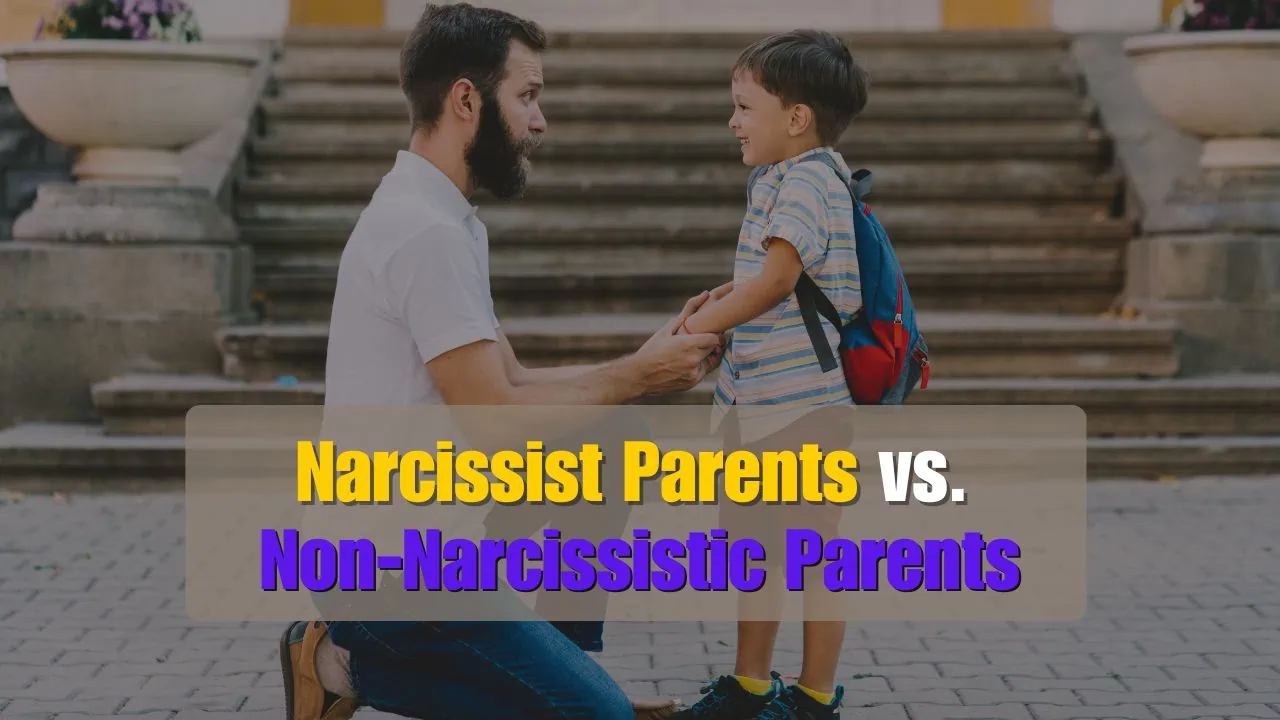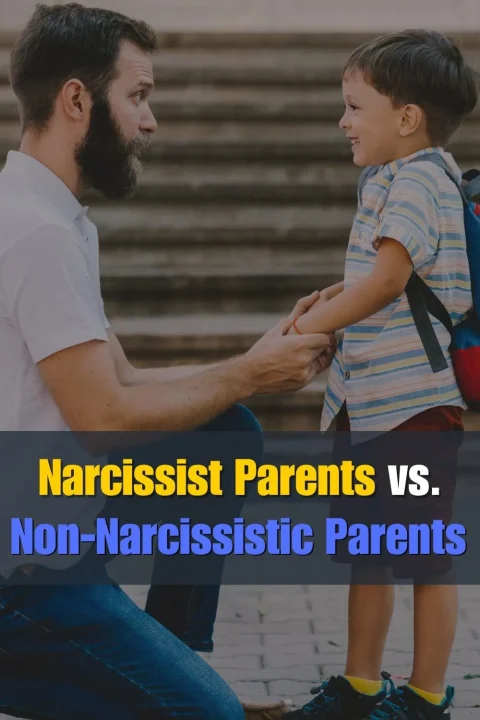Today's Monday • 6 mins read
— Reviewed by Dr. Sandip Roy.
Why do some parents mark their child’s failures as a smudge on their image, and punish them badly?
While other parents praise their child’s efforts and inquire about their child’s well-being when they do badly on a test or assignment.
That could be an unobvious sign between a narcissistic parent and a non-narcissistic parent.
There are more, and let’s compare these parenting styles and their impacts on children.
Truths About Narcissistic Parenting
- Narcissistic parents are overly focused on themselves. Their self-interest comes before their children’s well-being.
- They lack empathy and cannot connect at an emotional level with their kid. Plus, they need a constant supply of attention and admiration.
- They are usually highly controlling, severely punishing their children for little faults. They raise their child to be obedient, never to protest against their parent’s wishes or decrees.
- These children fear their parents. They are more slaves to their parents than children. They self-sacrifice without complaining. Never react negatively to any criticism or scolding from their parents.
- They can react extremely, ranging from sudden bouts of rage to shaming their child’s emotions. The child grows to feel their own feelings are inconsequential or unwelcome.
- Narcissistic parents usually remain detached and disinterested in their child’s progress. But they use their child’s achievements to validate their harsh parenting.
- They also manipulate, gaslight, and love-bomb to nudge their children to conform to their desires.
- These children feel suffocated by unrealistic expectations and constant demands. This breeds a toxic family where children must meet their parents’ needs, not the other way around.

Truths About Non-Narcissistic Parents
- Non-narcissistic parents are empathetic and supportive. They listen actively and encourage independence.
- They create a nurturing environment for their child’s well-being and emotional and psychological needs.
- They make them feel secure enough to say their opinions or protest.
- Their patience, unconditional love, and healthy boundaries create a supportive home environment. This has a long-term positive effect on their child’s self-worth.
- Non-narcissistic parents put their children’s needs first. They respect the child’s personal space and boundaries, and celebrate their independence.
- Their reprimands are not harsh criticisms, but feedbacks to make the child understand what was wrong, and how to do it right.
- These children feel safe from retribution when they make and admit their mistakes. They do not fear but love and respect their parents.
- On their part, supportive parents ignite their child’s autonomy, and recognize them as individuals with their own thoughts and feelings.
- Non-narcissistic parents create a home space where their children can flourish in true freedom, grow healthy self-worth, and become responsible adults.
Psychological Impacts of Parents On Children
Children of Narcissistic Parents
Narcissistic parents leave long-lasting scars on their children.
- These children often struggle with low self-worth, anxiety, and forming healthy relationships. They feel “not enough” and constantly seek approval, mirroring the approval-seeking behavior of their parents.
- Growing up in a home where they were treated as mere puppets and made to worship their parents, they learn to abide, not protest. They constantly try to please people and conform to their bosses or father-figures.
- Such a child often feels unheard, unseen, and unacknowledged. They assume being treated as a useful accessory, rather than as a person, is the norm.
- They learn to expect people’s love for what they do for them, not for who they truly are as individuals. This makes them doubt their own decisions, feelings, and opinions.
- Narcissistic parents often teach their children that acting nice and looking good is more important than being real. This makes them hide their authenticity, and focus on outward appearances.
- This child is often burdened with keeping family secrets, and severely punished for discussing those issues with anyone. They may grow up with a fear of talking about their family issues, even with their therapist.

- Their childhoods were all about conforming, being used, criticized, and judged. Not accepted and loved. As adults, they seek love as a way to get approval and overcome their feelings of not being “good enough.”
- They struggle with relationship skills and self-care because they never had role models for healthy emotions and appropriate boundaries. They often become co-dependent and have difficulty with individuation when older.
- They have to take on caregiving roles at a young age. This role reversal can extend into adulthood, with narcissistic parents expecting ongoing care and support, often using guilt and manipulation to enforce this.
- They are taught to seek external validation rather than internal validation, receiving mixed messages, like “Do well to make me proud as a parent, but don’t do too well and outshine me.”
Children of Non-Narcissistic Parents
- Children raised by non-narcissistic parents typically enjoy higher self-esteem, better emotional regulation, and stronger interpersonal skills.
- They can express their opinions, protest against perceived injustice, and feel valued for who they are.
- A supportive parent does not let their child feel useless for not catering to their parent’s’ needs. This protects children from walking on eggshells, afraid or apprehensive.
- Their siblings are not played off against them (narcissistic triangulation). They keep direct communication and share their own news to build stronger sibling bonds.
Long-Term Consequences of Narcissistic Parenting
- Adult children of narcissistic parents often suffer from post-traumatic stress disorder (PTSD), depression, and anxiety in adulthood. They often need trauma therapy and self-reparenting to heal.
- They may struggle with self-worth and relationship issues, often requiring therapy to overcome their childhood experiences.
- They can have a strained relationship with their siblings, and grow up with a family discord.
- Children of narcissistic parents often internalize blame for their parents’ issues. This can lead them to a deep-seated belief that their needs and desires are a burden. Worse, this can make them feel ashamed of seeking help or assert their needs in adult relationships.
Children from narcissistic families are often more resilient to adversities and can get back to normal life with the right support and intervention.
Final Words
So, narcissistic and non-narcissistic parents differ in their core motivations and behaviors.
Knowing these can help parents see their faults and learn better parenting practices. For children who grew up under narcissistic parents, they can get insights into their unexplained behaviors.
√ Also Read: https://happyproject.in/how-narcissists-treat-their-mothers-brothers/
√ Please spread the word if you found this helpful.
• Our Story!